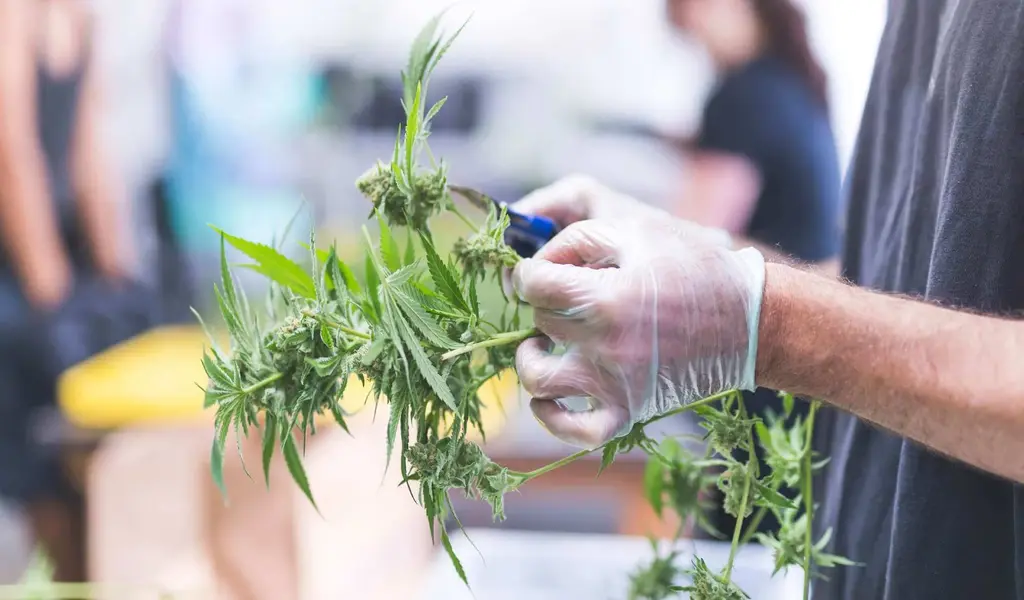Introduction
As the global perspective on cannabis undergoes a significant transformation, driven by changing legal frameworks and evolving societal attitudes, the need for responsible cannabis waste disposal has become increasingly crucial.
Cannabis, both for medical and recreational use, generates a considerable amount of waste throughout its lifecycle – from cultivation to consumption. Proper management of cannabis waste is not only essential for regulatory compliance but also for minimizing environmental impact and ensuring public safety.
Cannabis Industry’s Waste Challenge
The cannabis industry has witnessed remarkable growth in recent years, with legalization efforts gaining traction in various regions. However, this surge in production and consumption has led to an equally significant rise in waste generation. Cannabis waste includes various components such as plant material, packaging, processing byproducts, and even expired or unsold products from dispensaries.
One of the primary concerns in cannabis waste management is the potential environmental harm. Improper disposal of cannabis waste can lead to contamination of water sources, soil degradation, and harm to local ecosystems. Moreover, cannabis waste often contains a significant amount of THC, the psychoactive compound in cannabis, which requires proper handling to prevent unintentional exposure and ensure public safety.
Regulatory Landscape
Different regions and jurisdictions have varying regulations concerning cannabis waste disposal. These regulations typically dictate the proper methods for handling, storing, and disposing of cannabis waste. Failure to adhere to these regulations can result in hefty fines, legal penalties, and reputational damage for businesses.
For instance, California’s cannabis waste disposal regulations require that all cannabis waste be rendered unusable and unrecognizable before being disposed of, usually by grinding and mixing it with non-cannabis waste. Additionally, the waste must be tracked from the point of generation to disposal to maintain transparency and accountability.
Challenges in Cannabis Waste Disposal
Cannabis waste disposal presents several challenges that must be addressed to ensure effective and sustainable management:
- Security and Privacy: Given the sensitive nature of the cannabis industry, maintaining security and privacy while disposing of waste containing sensitive customer and business data is paramount.
- THC Containment: Preventing the release of THC into the environment is critical to avoid its negative impacts on wildlife and water systems. Specialized methods are required to neutralize THC during the disposal process.
- Packaging Waste: The packaging used for cannabis products can contribute significantly to the overall waste generated. Developing eco-friendly packaging solutions is essential to mitigate this aspect of the waste problem.
- Costs: Implementing proper cannabis waste disposal practices can be costly, especially for small businesses. Finding cost-effective solutions while adhering to regulations can be a challenge.
Solutions and Best Practices
To address these challenges and promote responsible cannabis waste disposal, various solutions and best practices are emerging:
- Composting and Biomass Conversion: Composting cannabis waste can turn it into nutrient-rich soil additives, benefiting agriculture. Biomass conversion technologies can also transform waste into biofuels or other valuable products.
- Secure Destruction Methods: Secure destruction methods, such as incineration, can neutralize THC and ensure that waste products are rendered unusable and unrecognizable.
- Recycling Packaging: Cannabis companies are increasingly exploring sustainable packaging options to minimize packaging waste. Using recyclable or biodegradable materials can significantly reduce environmental impact.
- Collaboration and Education: Collaboration among industry stakeholders, including producers, regulators, and waste management companies, is crucial to establish consistent practices. Public education campaigns can also raise awareness about responsible cannabis waste disposal among consumers.
Conclusion
As the cannabis industry continues to expand and evolve, the issue of cannabis waste disposal demands immediate attention. By adopting responsible waste management practices, the industry can mitigate its environmental impact, ensure compliance with regulations, and contribute to a sustainable future.
It is imperative that all stakeholders, from cultivators to consumers, work together to find innovative and efficient solutions for cannabis waste disposal, thereby shaping an industry that is both economically prosperous and ecologically responsible.
SEE ALSO: CDC Warns Of BA.2.86 Coronavirus Variant’s Potential For Reinfection And Vaccine Impact
⚠ Article Disclaimer
The above article is sponsored content any opinions expressed in this article are those of the author and not necessarily reflect the views of CTN News






